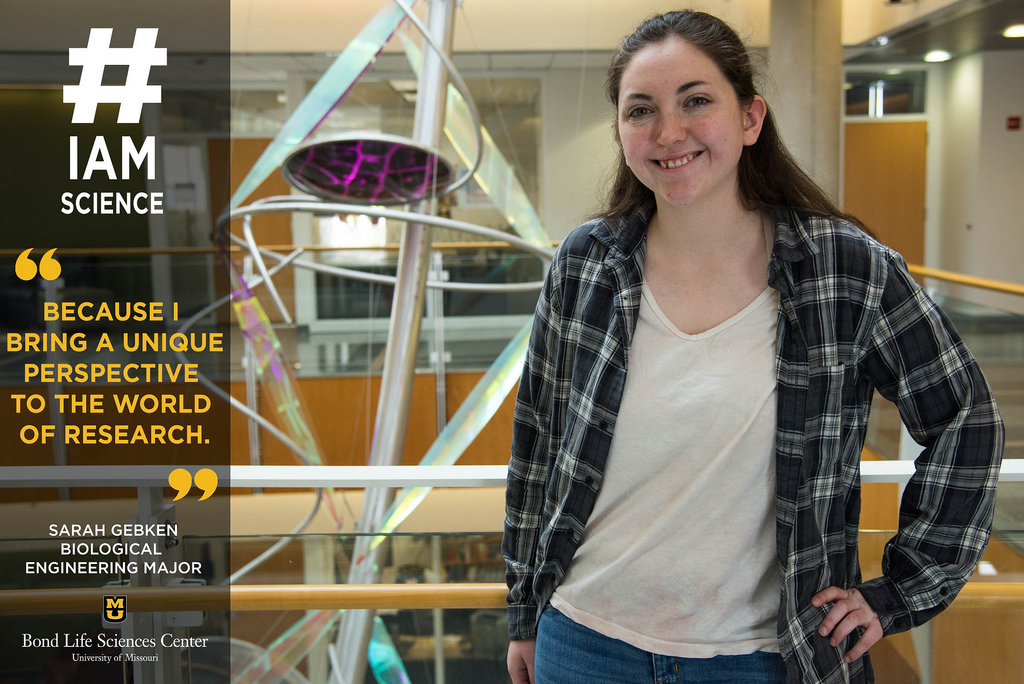Published on

Sarah Gebken, a junior biological engineering major, works in the Pires Lab in Bond LSC. | photo by Allison Scott, Bond LSC
By Allison Scott | Bond Life Sciences Center
“#IAmScience because I bring a unique perspective to the world of research.”
They say only an engineer could figure out their way around the engineering building at Mizzou. Now in her junior year, Sarah Gebken boasts the ability to do just that.
Her unique perspective as a biological engineering major translates to her work in Chris Pires’ lab in Bond LSC, too. As both an engineer and a scientist, Gebken is prepared to contribute new ideas when trying to find solutions to complicated issues.
“Engineering classes are geared toward problem-solving, so I’m able to pinpoint where we’re going to have issues,” Gebken said. “It gives me a different view on research.”
The lab focuses on trying to get Clustered Regularly Interspaced Short Palindromic Repeats (CRISPR) to work in Brassica oleracea — a species of plants that includes cabbage, cauliflower and kale. Doing so has the potential to transform the farming industry.
“The main goal of our research is to save farmers space and time,” Gebken said.
CRISPR acts like scissors to DNA, which helps Gebken and her lab mates gain valuable understanding of the genes.
“CRISPR codes for a protein that clamps onto the DNA and makes a cut,” Gebken said. “We’re relying on that cut to knock out a gene to see what the gene actually does.”
Although Gebken has been trying to find a solution to the same question since she joined the lab as a freshman, she still finds the research satisfying.
Working with the plasmids is the next piece of the puzzle that the lab is aiming to complete.
“We’re making progress, which is exciting,” Gebken said. “We just ordered our plasmids yesterday.”
Once they figure that out, it’ll allow them to use that understanding to make better plants for the world moving forward.
After she finishes her undergraduate degree next year, Gebken plans to pursue a master’s degree and ultimately earn a Ph.D.
“I want to go on and be an academic professor, which would be a lot of research,” Gebken said. “Even if I went into industry, I’d want to do some kind of research.”
For Gebken, the quizzical nature of science serves as motivation to keep going.
“In a research setting, everything is a question,” Gebken said. “And you don’t have answers to a lot of them.”